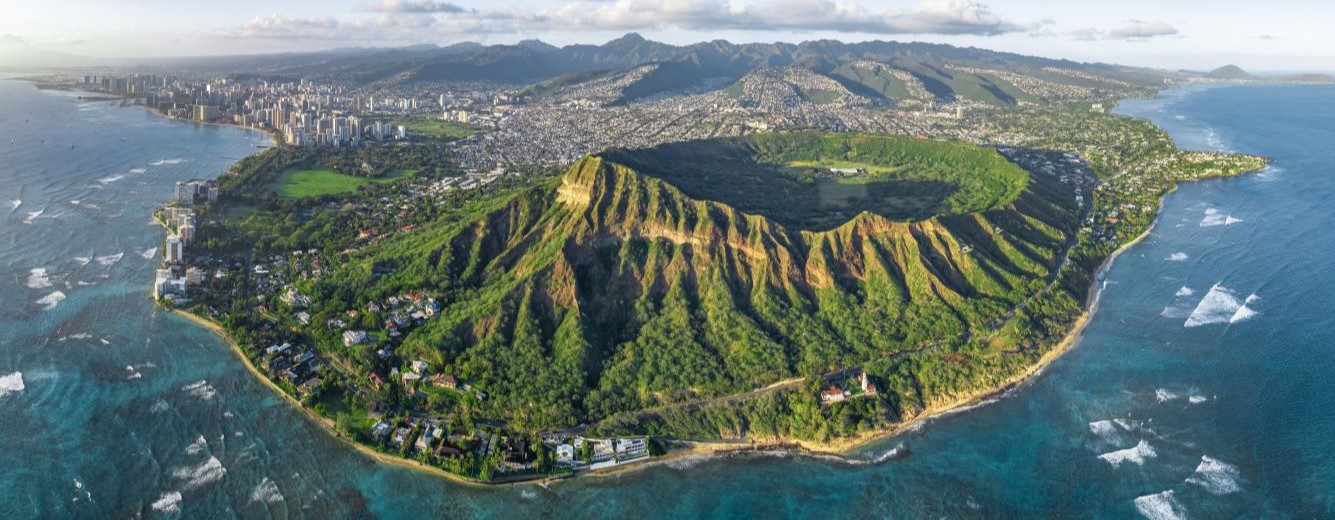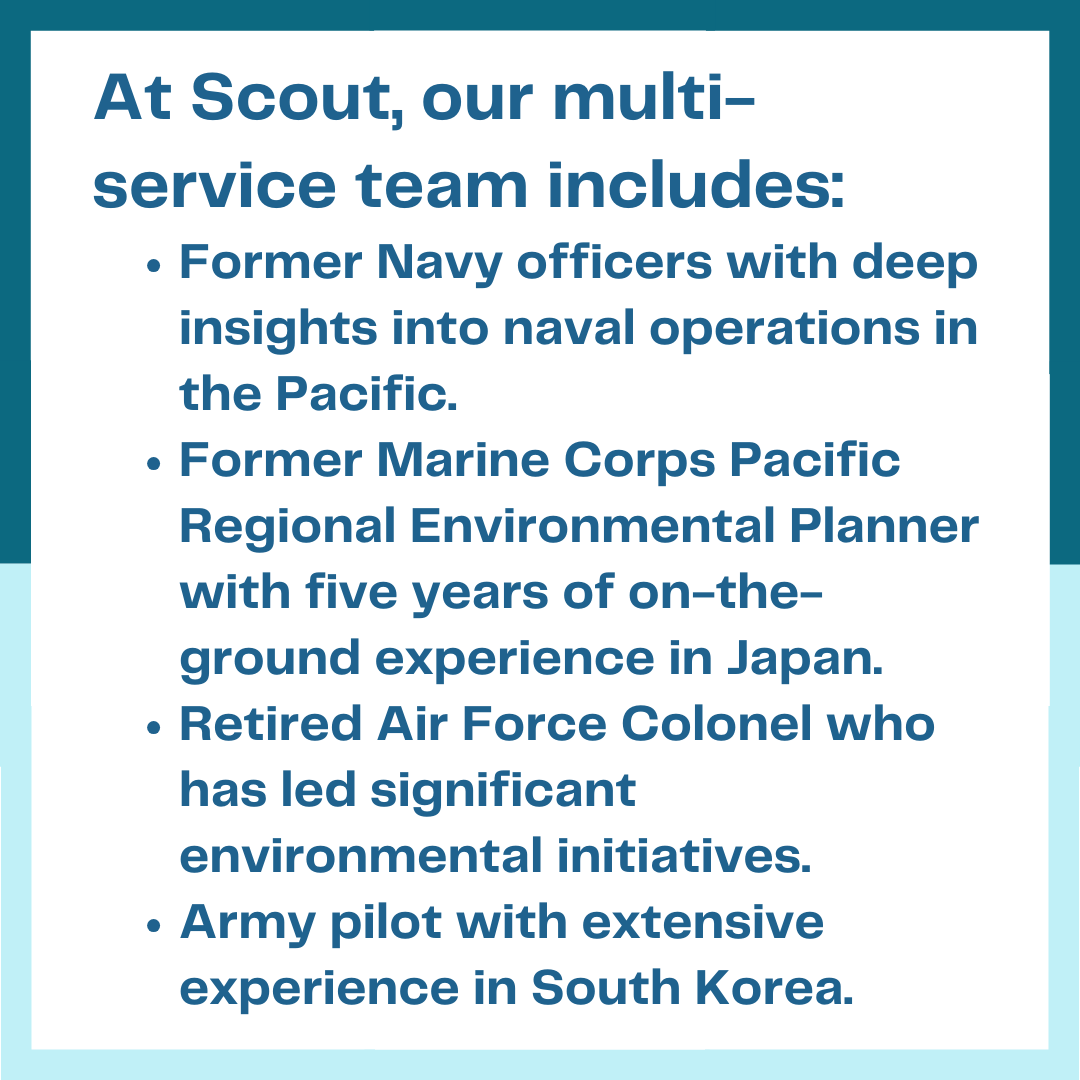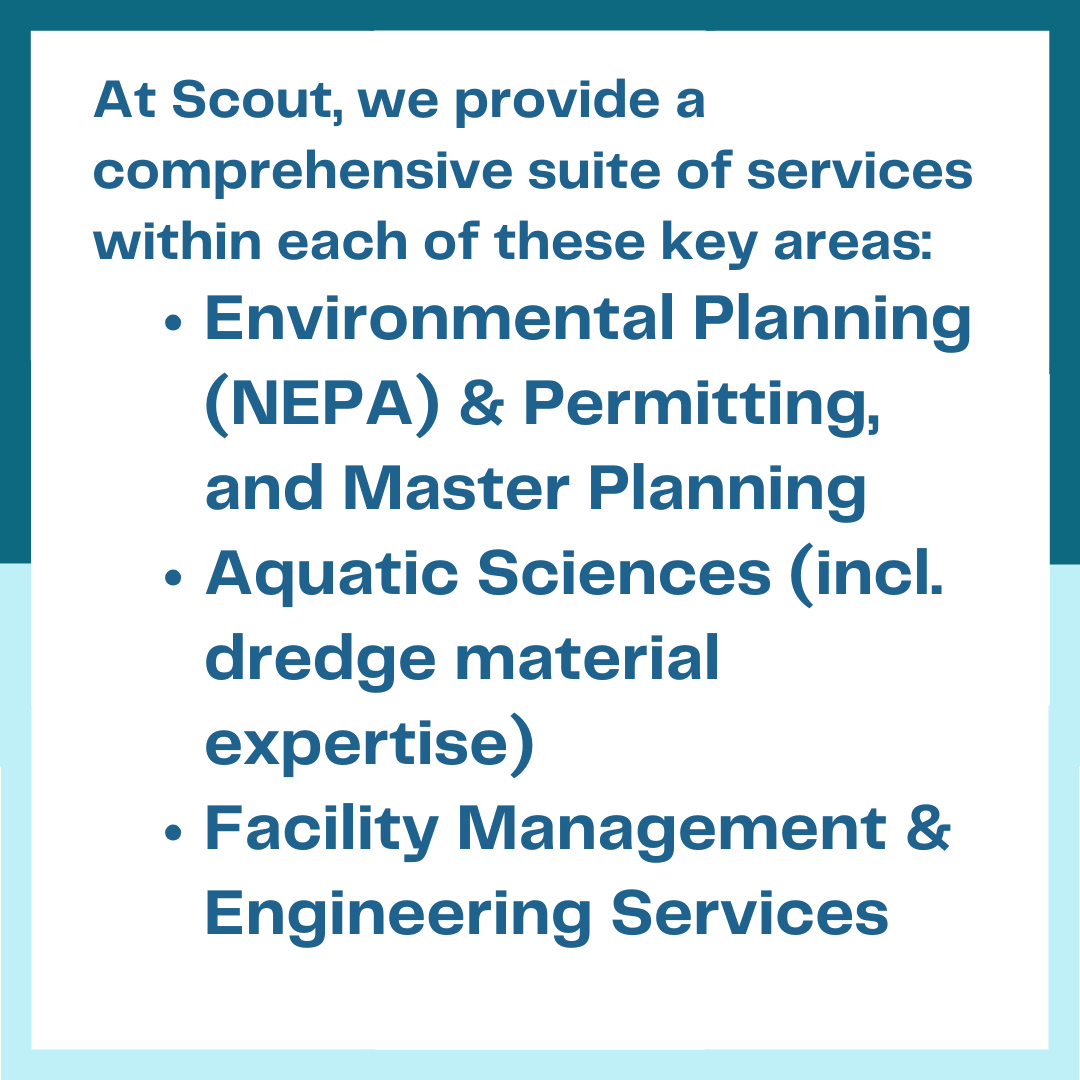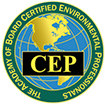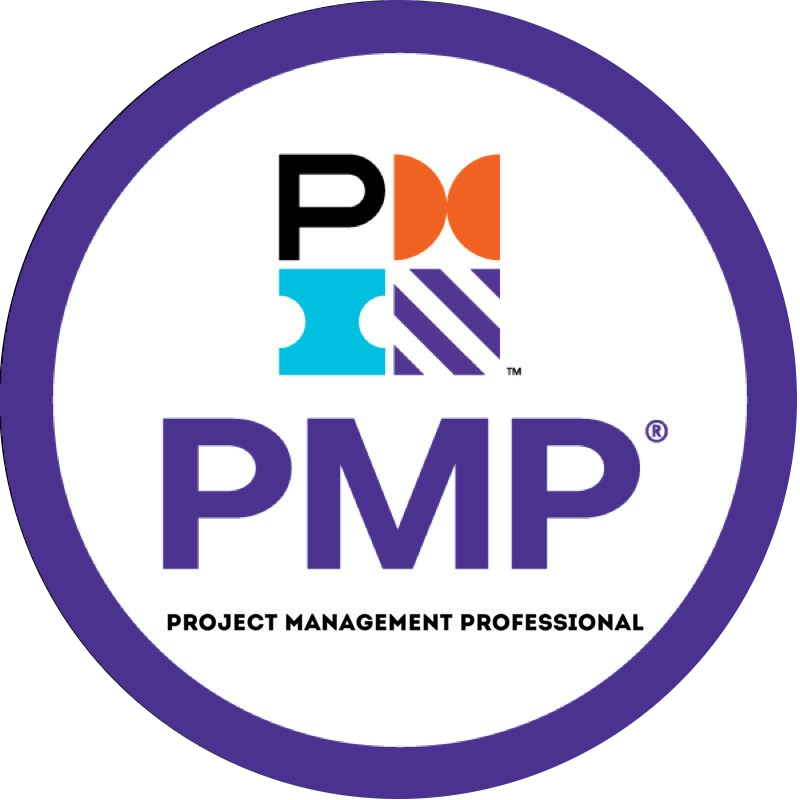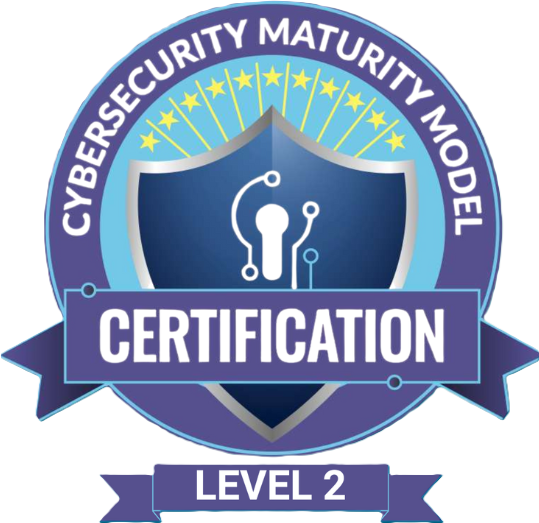Scout has always prided itself on deep expertise, and nowhere is that more evident than in our Indo-Pacific team. With a diverse group of professionals who bring decades of experience in environmental planning, military operations, engineering services, and program management, Scout is well-positioned to support the unique challenges of the region. Here are key insights into how this expertise is shaping our growth in the Indo-Pacific.
1. Staff On-Island and Deep Regional Knowledge
One of Scout’s greatest strengths in the Indo-Pacific is our team’s firsthand experience living and working in the region. Several team members have spent years on the ground, providing unique insights into local environmental, regulatory, and cultural landscapes. With staff currently based in Hawaii and team members who have lived in Guam, South Korea, and Japan for extended periods, we bring invaluable local knowledge to every project. This on-the-ground experience allows us to effectively navigate the nuances of regional policies and to establish trusted relationships with local stakeholders—ensuring our projects are not only technically sound but also culturally and regionally aligned.
2. Depth of Military and Aviation/Airfield Experience 
Our team’s extensive military backgrounds, spanning multiple branches of the U.S. Armed Forces, provide Scout with a distinct advantage in understanding and managing defense-related environmental and engineering projects.
We are a truly multi-service company, with staff who have served in the Navy, Air Force, Army, and Marine Corps—enabling us to bring a comprehensive, cross-branch perspective to Indo-Pacific projects. This diversity of experience allows us to effectively support projects and teaming efforts that often involve multiple Department of Defense (DoD) services. Among our key personnel, we have a retired Naval Officer who successfully led federal business development in Hawaii, securing multiple iterations of a high-value Naval Facilities Engineering Systems Command Pacific (NAVFACPAC) design contract, and Scout’s president, Ryan Pingree, a former Navy Intelligence Officer, who played a pivotal role in NAVFACPAC Environmental Planning contracts. Personally, I spent five years as the civilian regional environmental planner for the Marine Corps in Japan, overseeing environmental compliance and planning for the basing and operation of MV-22 and Joint Strike Fighter aircraft in Okinawa and mainland Japan. Additionally, we have a retired Air Force Colonel with extensive environmental leadership experience, and an Army pilot with aviation operations expertise in South Korea.
This combined military and cross-branch experience strengthens our ability to anticipate and address the complex environmental and operational needs of military installations across the Indo-Pacific.
3. Regional Planning and Operations Expertise in Hawaii, Guam, Japan, South Korea, and Beyond 
Scout’s Indo-Pacific team is made up of experts with extensive experience living and working across the region. One of our senior team members has over 40 years of environmental consulting experience, having led regional operations for offices in both Honolulu and Guam. This experience includes establishing an environmental office in Guam and managing large-scale environmental projects throughout the Pacific, giving us a deep understanding of the region’s unique challenges and opportunities.
Additionally, another key team member managed the Guam and the Commonwealth of the Northern Mariana Islands (CNMI) Military Relocation Environmental Impact Statement (EIS), overseeing vital environmental projects in Guam and Tinian. With this firsthand, boots-on-the-ground experience, Scout’s team not only understands the regulatory environments in the Indo-Pacific, but also navigates the cultural and operational complexities that are crucial for project success in the region.
4. Leading Environmental Planning and Engineering Projects
Environmental planning and engineering are at the core of Scout’s services. From former NEPA Project Managers to senior planners who live in Hawaii and have supported the state’s environmental goals for years, our team leads environmental planning (NEPA and HEPA) projects with precision and expertise. Whether it’s dredging, sediment characterization, or complex permitting for federal and defense clients, Scout’s Indo-Pacific team brings decades of collective experience to each project.
5. Science-Driven Environmental Solutions

Our expertise allows us to approach projects with the highest level of scientific rigor, ensuring that our solutions are both sustainable and compliant with environmental regulations.
6. A Track Record of Involvement with Successful Projects
Before joining Scout, our team members were involved in several high-profile environmental projects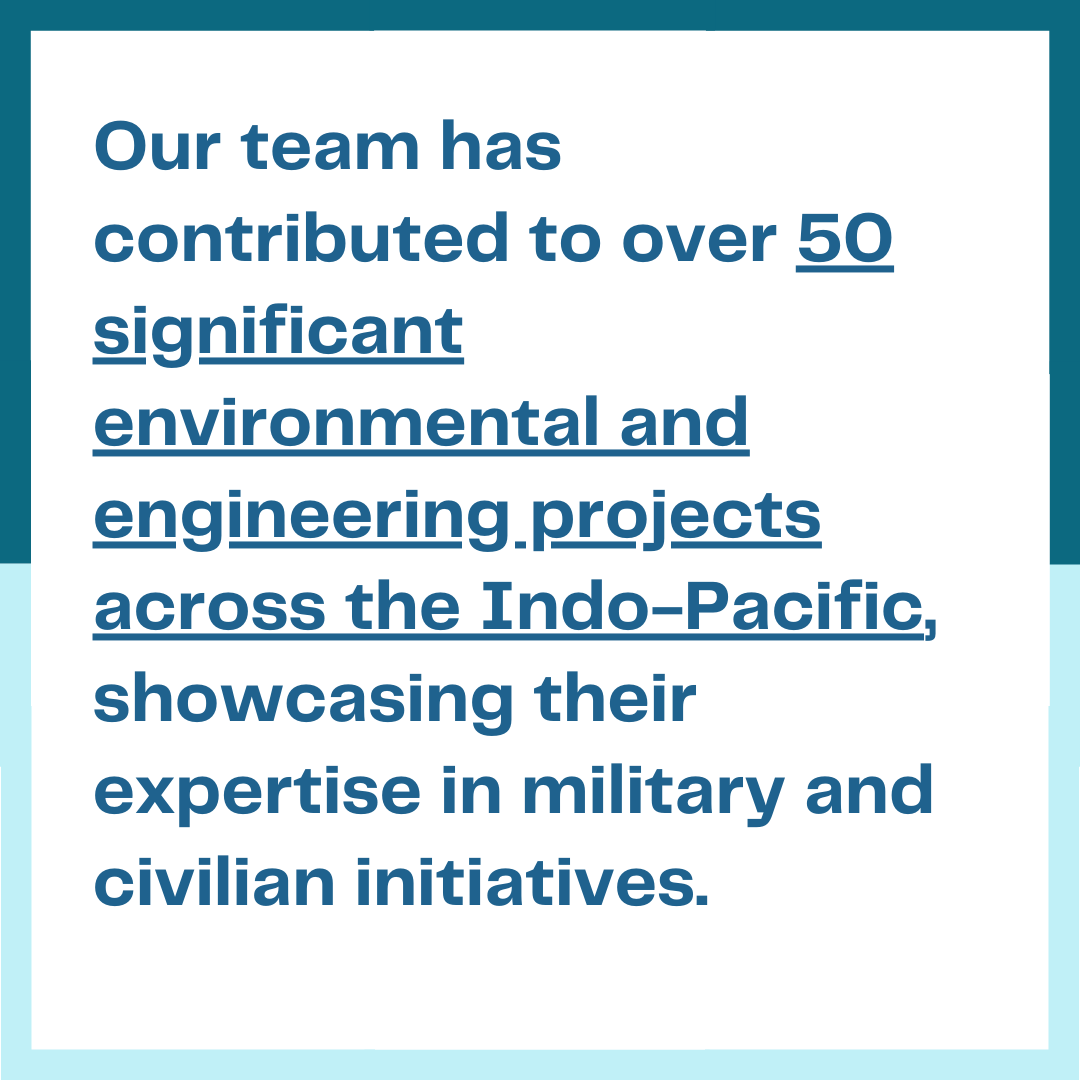
- CJMT Environmental Impact Statement (EIS): A former Marine Corps Installations Pacific (MCIPAC) Regional Planner managed this extensive EIS project and team, addressing the environmental impacts of CNMI military training.
- Guam and CNMI Military Relocation EIS: One of our team members served as a project manager for this multi-year EIS, supporting the relocation of U.S. military personnel while balancing environmental and cultural concerns in Guam and Tinian.
- Hawaii State Environmental Planning: A former Honolulu-based environmental planner supported various initiatives to ensure environmental compliance and long-term sustainability in Hawaii.
- Aquatic Sediment and Dredging Projects: Our Senior Aquatic Scientist has led numerous marine and coastal projects, including sediment characterization and toxicology studies essential for regulatory compliance and habitat preservation across the Pacific.
- Natural Resources Management Planning: Our senior staff have prepared many Comprehensive Conservation Plans (CCP), multi-species Habitat Conservation Plans (HCP), Integrated Natural Resources Management Plans (INRMP), environmental risk assessments and mitigation plans, biological field studies, instream flow assessments, wetland delineations, habitat restoration, and related projects throughout the Pacific Rim.
- Defense Contracts in Hawaii: A former Naval Officer spearheaded a federal contracting effort that secured multiple iterations of a NAVFACPAC contract including a $60 million design contract, laying the groundwork for future environmental and defense-related projects in Hawaii. In addition, he established teaming relationships which resulted in over $200 million in contract capacity with NAVFACPAC and USACE.
7. Conclusion
As Scout continues to grow its presence in the Indo-Pacific, our team’s deep experience, regional insights, and established federal relationships position us to deliver exceptional results for teaming partners and clients. We’re excited about the future and the many ways we can contribute to the region’s environmental and operational goals.
Ready to partner with a trusted SDVOSB team that understands the Indo-Pacific? Contact us today at: hello@scoutenv.com.

